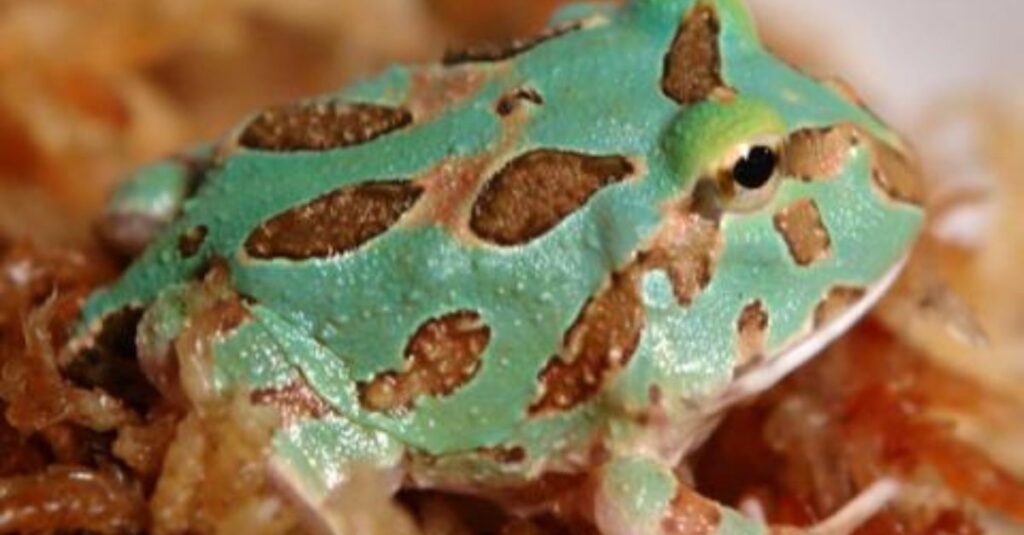🐸 Are Pacman Frogs Loud at Night?
Understanding Nocturnal Noises from Your Horned Frog
Are Pacman Frogs Loud at Night? - At a Glance
Pacman frogs are not usually loud, but males may croak or grunt at night, especially during feeding, humidity shifts, or mating season. These sounds are brief and not disruptive for most owners. If your frog is noisy, it’s likely a healthy sign of activity—not a cause for concern.
Pacman frogs are famously lazy and quiet during the day, often buried under substrate. But what happens after dark? Do they suddenly become loud, vocal creatures?
Whether you’re housing one in your bedroom or just curious about their behavior, this article explores:
When and why Pacman frogs make noise
What those nighttime sounds mean
How loud they get
Whether it’s a sign of health or stress
Tips for reducing unexpected noise

Are Pacman Frogs Nocturnal?
Yes—Pacman frogs are primarily nocturnal, meaning they are:
Most active during the evening and night
More likely to eat, move, and vocalize after dark
Quiet and buried during daylight hours
👉 Are Pacman Frogs Nocturnal?
👉 Pacman Frog Behavior: What’s Normal and What’s Not
Do Pacman Frogs Croak or Make Sounds?
Yes—especially males, which have vocal sacs.
Common Sounds Pacman Frogs Make:
Croaking: Loud, repetitive mating call (mostly males)
Grunting: Low, short bursts (can be either sex)
Squealing: Defensive sound when threatened or touched
Huffing: A short “puff” sound from stress or warning

When Are Pacman Frogs Noisiest?
| Time or Trigger | Sound Likelihood |
|---|---|
| Nighttime (8 PM–2 AM) | Most common for croaking |
| Rainy or humid conditions | Increased vocal activity |
| During or after misting | Likely grunts or croaks |
| Breeding season (spring/summer) | Males croak loudly |
| When handled/stressed | Squeals or huffs |
If your frog just croaked after a misting session, it’s probably celebrating the “rain”!

How Loud Are Pacman Frogs?
Average volume: 50–70 decibels (similar to a normal conversation)
Croaks: Louder and more repetitive, especially from males
Grunts and huffs: Short, low-volume bursts
Squeals: Startling but infrequent
If you sleep nearby, a croaking adult male could wake you up—but this usually happens sporadically.
Is It Normal for Pacman Frogs to Be Noisy?
Yes, if:
The noise happens at night
It’s short-lived and irregular
Your frog is otherwise healthy and active
It’s not normal if:
Your frog is croaking or squealing all day
The noise is paired with signs of illness or stress
They’re squealing when handled or touched frequently
👉 Handling Pacman Frogs: Should You or Shouldn’t You?
👉 How to Tell If Your Pacman Frog Is Sick
Tips to Minimize Nighttime Frog Noise
If your Pacman frog is vocal at night and it’s disturbing your sleep:
What You Can Do:
Move the tank out of your bedroom if you’re a light sleeper
Avoid handling at night to reduce stress sounds
Don’t over-mist—extra humidity can trigger mating croaks
Keep a stable light schedule to help regulate their rhythms
Ensure proper temperature and humidity to avoid stress calls
FAQ: Noisy Pacman Frogs
Q: Is it only male Pacman frogs that croak?
A: Yes. Only males produce the loud mating croak. Females may grunt or huff but rarely vocalize loudly.
Q: Will my frog’s noise keep me up at night?
A: Possibly, if it’s a vocal male housed in your bedroom. Most sounds are brief, and frogs are quiet during the day.
Q: Can I stop my frog from croaking?
A: No—croaking is natural and healthy. Instead, manage when and where it happens with environmental tweaks.
